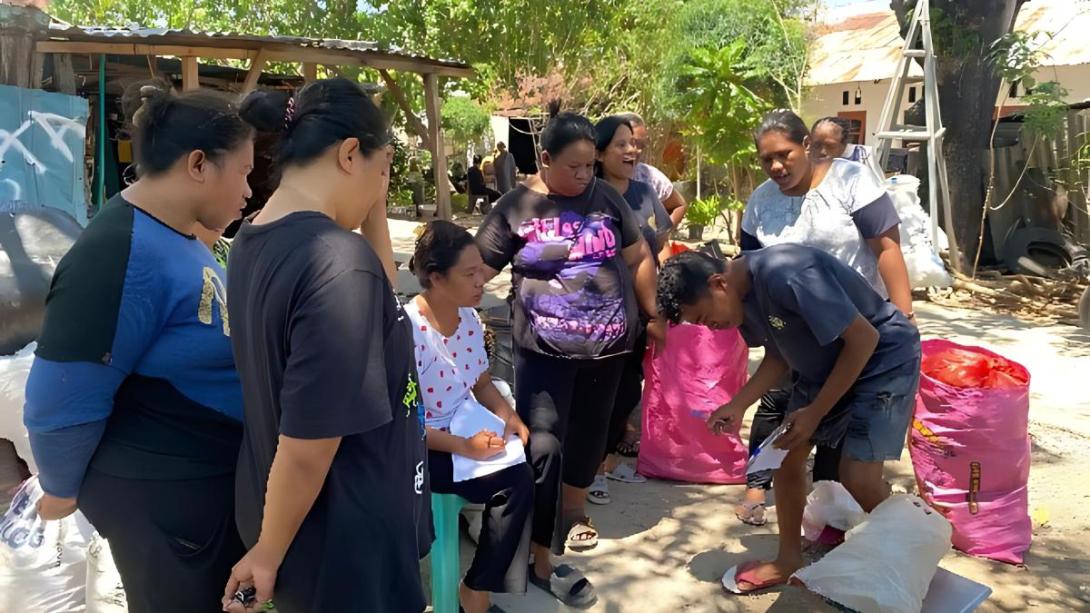
“We not only assist, but also grow and develop together, learning from each other to take advantage of every opportunity that exists.”
The overall aim of the project is to lay the groundwork for a sustainable household waste management system in Pasir Panjang by equipping participants with essential knowledge and skills, preparing a solid foundation for the future establishment of a new waste bank, and exploring opportunities for transforming recyclable materials into marketable products
Main Objectives:
- To provide 15 participants with a comprehensive understanding of waste management through a 3-day internship at a waste bank, focusing on waste sorting, environmental impacts, waste collection methods, organic waste management, and waste bank operations.
- To prepare 3 participants to become new waste bank managers by offering a 2-day advanced internship on waste bank management operations, laying the groundwork for successful waste bank establishment.
- To test and establish a functional waste bank by having the 3 newly trained participants work with the other 12 participants in the operational phase of the new waste bank.
- To facilitate an insightful workshop on transforming recyclable materials into marketable products, providing participants with practical skills and knowledge for creating economic value from waste
Stevie Tualaka’s project aimed to address household-level waste challenges by building a foundation for sustainable waste management and empowering marginalized women—fisherwomen and waste pickers—in Pasir Panjang, Kupang. The project trained 15 women in waste sorting, waste bank operations, and organic waste processing, including composting and eco-enzyme production. Rather than just offering education, the project emphasized practical skills, hands-on learning, and establishing a functional waste bank to create both environmental and economic impact.
Over the course of several months, the participants underwent training at two existing waste banks and gradually applied what they learned by collecting, sorting, and weighing waste. They launched their own small-scale waste bank, hosted on a participant’s property, with regular collection and weighing sessions. Despite delays in government formalization and logistical challenges, the women successfully accumulated savings ranging from IDR 16,000 to 197,000. The program also adapted to participant feedback by replacing planned recycling training with a more relevant financial literacy workshop.
The project promoted gender equality, inclusion, and intersectional leadership by involving women with disabilities and supporting women from informal economic sectors to step into public, environmental, and economic roles. Through co-design and community participation, the project fostered ownership, solidarity, and sustainability. It created a ripple effect in the community, encouraging neighbors and families to adopt waste sorting habits and supporting broader behavior change around environmental responsibility.
“We hope that by joining this program, we can establish a waste bank and become women who bring change in our environment, who can also be heard and certainly not underestimated.”
- Yasinta Adoe, Fisherwoman

